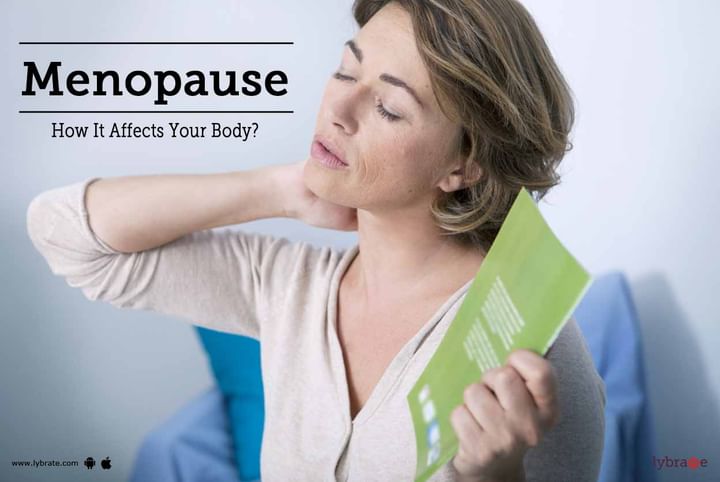Menopause - How It Affects Your Body?
Menopause is characterized as the absence of menstrual periods for 12 months. It is the time in a woman’s life when the ovaries stop functioning. The periods then stop forever. The normal period of menopause is 51 years of age, however, menopause may happen as ahead of schedule i.e. as early as 30s or as late as the 60s. There is no solid lab test to determine when a lady will encounter menopause. Here are a few ways in which menopause affects a woman’s body:
-
Skin: Consequences of menopause include dryness, loss of flexibility, thinning of the skin and expanded wrinkling. These symptoms result in poor recovery from injuries, hair loss and pigmentary changes. Unwanted hair growth and acne may likewise happen. Wrinkling is caused by excessive smoking and sun exposure. One should stay away from smoking and sun exposure.
-
Hair: Hormonal changes incorporate hirsutism (undesirable facial hair) or alopecia. Most ordinarily noted is the loss of scalp hair. Lower leg, pubic and axillary hair loss may also take place. Hirsutism is commonly noted on the face. Oral Hormone Replacement Therapy (HRT) may control facial hair in a few ladies. Medicines for expanded facial hair incorporate suing depilatory creams, delicate techniques for hair removal, laser treatment andante-testosterone medicines. Scalp alopecia might be treated with minoxidil.
-
Teeth: Menopause has been a cause for various dental/oral issues, including dry mouth and desquamative gingivitis. IHRT might be of advantage as a consequence of the part it plays in influencing oral bone and preventing the loss of teeth. The impacts of HRT seem to incorporate a reduction in bleeding and enhancing the flow of saliva.
-
Vulva and vagina: The genital tract is exceptionally dependent on estrogen and body changes during the menopausal time and post-menopause may incorporate vaginal and vulvar dryness. Vulval dryness may worsen other vulval skin conditions (e.g. dermatitis) bringing about aggravation. Staying away from cleansers and body washes on the vulva can dial down the aggravation and dryness. Contrasting options to cleanser incorporate sorbolene with glycerine or low-aggravation purifying balms and lotions.
-
Bladder: Urinary frequency and cystitis are very common around the time of menopause. Local estrogen creams may enhance incontinence in the short term, however, don't seem to do as such after treatment is stopped. Treatment for incontinence includes physiotherapy and even surgery.
-
Joints and muscles: Joint and muscle pain are regular symptoms during menopause. Exercise is vital to get rid of these side effects. Joint and muscle pain may improve with the utilization of HRT.
-
Weight changes: Between ages 45 and 55, ladies will gain a large portion of a kilo a year. This weight gain cannot be blamed on menopause entirely. The changes in hormonal status are connected with expanded body and stomach fat. This weight addition is connected with increased cardiovascular and metabolic hazard and changes in quality of life and sexual functioning.
-
Lifestyle measures: Your diet and eating routine need to be established to keep up a solid body weight and to have a healthy lifestyle.



+1.svg)
